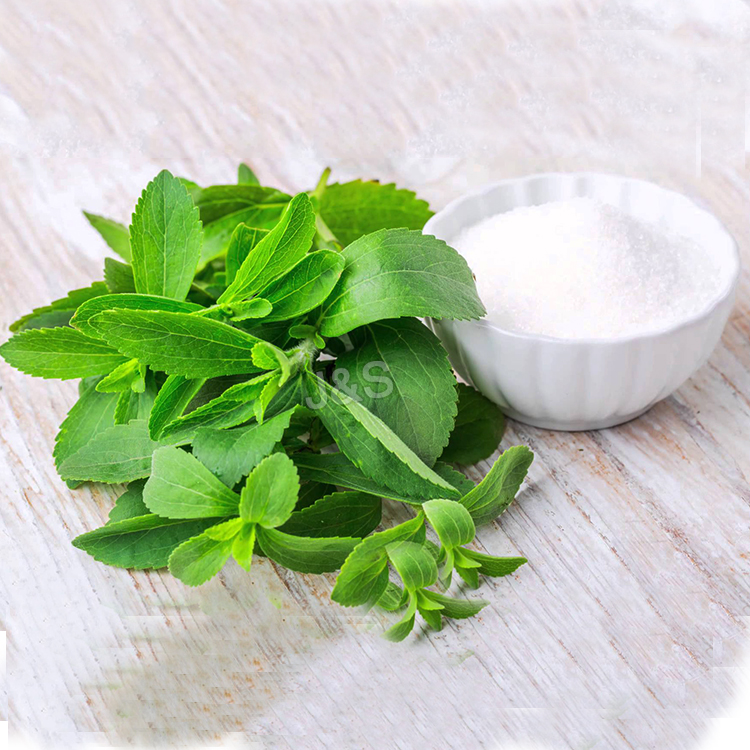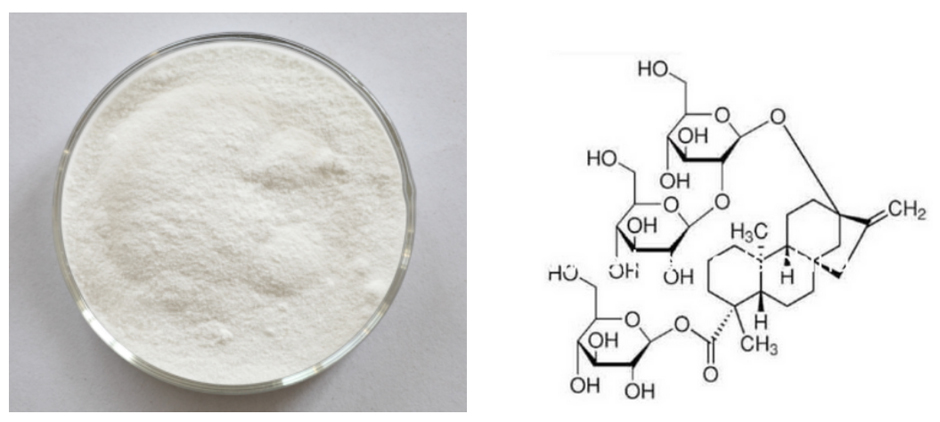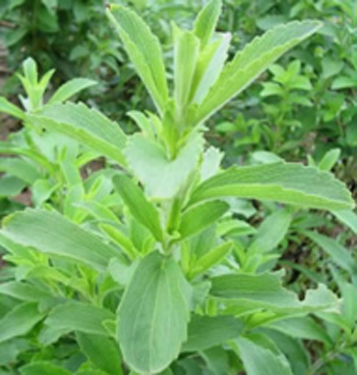Hot-selling attractive Stevia Extract Factory for Houston
Hot-selling attractive Stevia Extract Factory for Houston Detail:
[Latin Name] Stevia rebaudiana
[Plant Source]from China
[Specifications] 1.Stevia Extract Powder (Steviosides)
Total Steviol Glycosides 80%, 90%, 95%
2. Rebaudioside-A
Rebaudioside-A 40%, 60%, 80%, 90%, 95%, 98%
3. Stevioside 90%
One monomer in Steviol Glycosides
[Appearance] Fine white powder
Plant Part Used:Leaf
[Particle size] 80 Mesh
[Loss on drying] ≤5.0%
[Heavy Metal] ≤10PPM
[Shelf life] 24 Months
[Package] Packed in paper-drums and two plastic-bags inside.
[Net weight] 25kgs/drum
Stevia Extract
[Characteristics]
Stevia sugar features high sweetness and low calorie and its sweetness is 200 350 times of that of cane sugar but its calorie is only 1/300 of that of cane sugar.
The component of stevia extract that gives it its sweetness is a mixture of various steviol glycosides. The components of sweetness in stevia leaves are stevioside, rebaudioside A, C, D, E and dulcoside A. Rebaudioside C, D, E and dulcoside A are small in quantity. The principal components are stevioside and rebaudioside A.
The quality of stevioside and rebaudiosideA is better than those of other components, which are commercially extracted and used in various applications.
The steviol glycosides present in stevia extract are referred to as “steviosides” or ¡°stevia extract¡±. Among these “steviosides”, the most common is Stevioside followed by RebaudiosideA. The Stevioside has a slight and pleasant herbal taste and the Rebaudioside-A has no herbal taste.
Although Rebaudioside C and dulcoside A are small in quantity in stevia extract, they are the major components giving bitter aftertaste.
[Function]
A large number of pharmaceutical tests have proved that stevia sugar has no side effects, carcinogens, and is safe for eating.
Compared with cane sugar, it can save 70% of the cost. With pure white color, pleasing taste and no peculiar smell, Stevia sugar is a new sugar source with broad perspective for development. Stevia rebaudianum sugar is the natural low hotsweet agent mostly similar to the flavor of cane sugar, approved to be used by State Ministry of Health and Ministry of Light Industry.
It is the third natural succedaneum of cane sugar and beet sugar with development and health care value, extracted from the leaves of the herbal vegetable of the composite family-stevia rebaudianum.
Product detail pictures:

Related Product Guide:
Well-run equipment, specialist income crew, and better after-sales services; We're also a unified major family, anyone stay with the organization value "unification, determination, tolerance" for Hot-selling attractive Stevia Extract Factory for Houston , The product will supply to all over the world, such as: USA, San Diego, French, We are always creating new technology to streamline the production, and provide goods with competitive prices and high quality! Customer satisfaction is our priority! You can let us know your idea to develop unique design for your own model to prevent too much similar parts in the market! We will offer our best service to satisfy all your needs! Please contact us right away!
https://diannesjuicyadventure.blogspot.com/
I was just showing a quick yummy delicious juice I have never made before. I have been missing out on this. Oh Man TRY IT!!!!!! Less spices would of worked better. Mine was spicy, but nothing to complain about~
Grape Seed Extract and oligomeric proanthocyanidins (OPCs) clearly possess remarkable antioxidant properties. Their effects on reducing free radical damage and oxidative stress suggest that they may be particularly effective in reducing the risk of cancer, cardiovascular disease and a number of the chronic diseases associated with ageing. It is 20 times more potent than Vitamin C and 50 times stronger than Vitamin E.
It is an antiallergenic or antihistamine, anti-inflammatory, and an antioxidant. It strengthens blood vessels, improves skin and aids in circulation. Researchers have discovered that Grape Seed Extract can help defeat the hormone dihydrotestosterone (DHT) which stops the hair follicle growth cycle. Grape Seed Extract can help stimulate healthy hair growth.
Health Benefits:
· Antioxidant
· Cardio protection (reduces risk of atherosclerosis)
· Reduces cancer risk like prostate cancer, colon cancer etc.
· Improves vascular strength (inflammation/swelling)
· Restores collagen (stronger blood vessels)
· Reduces edema (inflammation/swelling)
· Promotes eye health (reduces risk of macular degeneration and cataracts)
· Helps skin to remain young looking
· Improves circulation
· Promotes healing
The sales manager is very patient, we communicated about three days before we decided to cooperate, finally, we are very satisfied with this cooperation!





